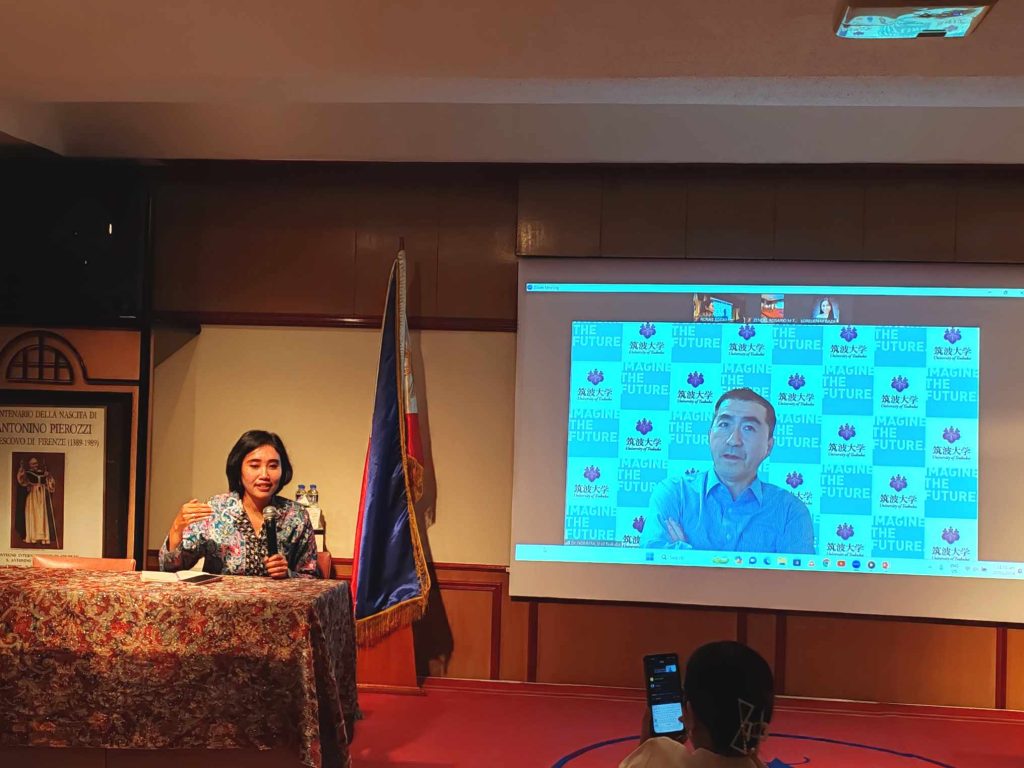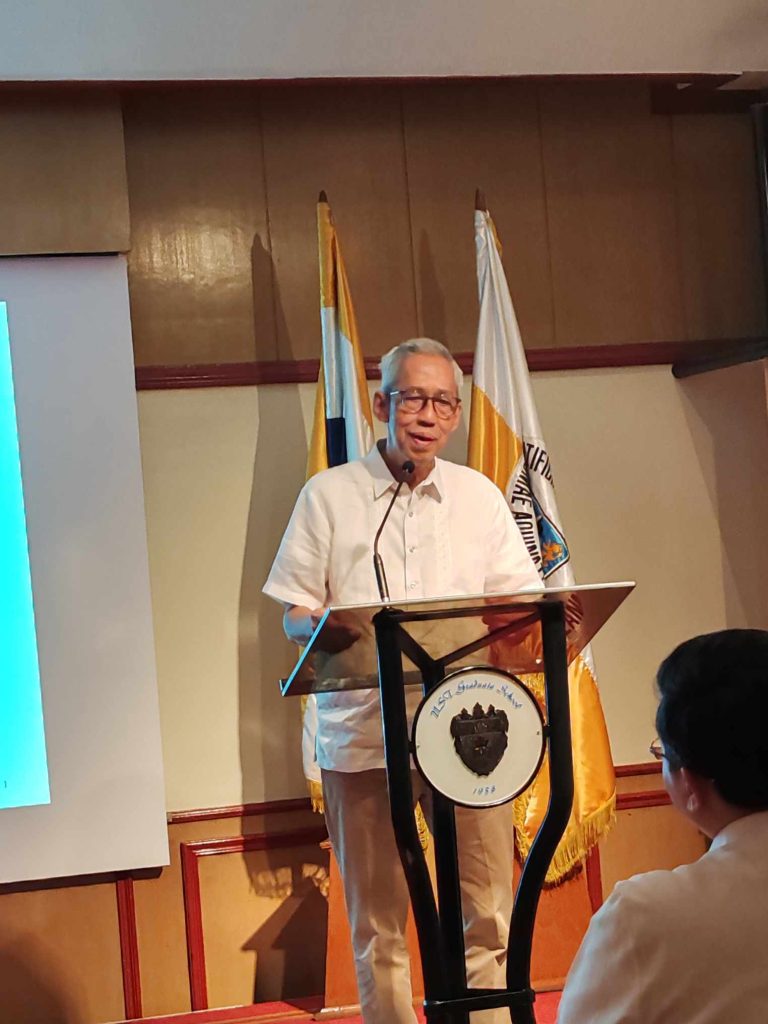Science and language experts reaffirmed the impact of Filipino in learning and communication at the 30th Panayam Pang-Agham, held at Tanghalang Teresita Quirino (TTQ), Benavidez Building last March 20-21.


Organized by the UST Research Center for the Natural and Applied Sciences (RCNAS) and the UST Departamento ng Filipino, in cooperation with the UST College of Science, UST Faculty of Engineering, and UST Graduate School, the international conference underscored inclusivity in communicating science using the country’s national language.
To substantiate their point, RCNAS Director Prof. Bernard John V. Tongol, Ph.D. and Departamento ng Filipino Chair Prof. Zendel Rosario M. Taruc, Ph.D. delivered their Welcome and Opening Remarks, respectively, looking back at the history of Panayam, in Filipino.
In his Keynote Lecture, Professor Emeritus Fortunato B. Sevilla, III, Ph.D. attested that students understand concepts in Chemistry faster and more effectively when these are explained in Filipino. The Academician of the National Academy of Science and Technology also related his observation that Science is being taught in the native languages of developed countries. Meanwhile, National Research Council of the Philippines (NRCP) Executive Director Dr. Bernardo N. Sepeda delivered the Plenary Lecture.
Educators from international institutions gave lectures on how their respective national languages were used in imparting scientific knowledge to their own people. Prof. Nakao Nomura, from the University of Tsukuba, Japan, lectured via Zoom, while Dr. Monika Widyastuti Surtikanti, M.Pd., from Universitas Katolik Santo Agustinus Hippo, Indonesia, and Prof. Yann-Wen Lan, from National Taiwan Normal University joined the participants in UST.
Experts from various sectors in the country also imparted their scientific knowledge and experience. Academician Victor B. Amoroso, director of Center for Biodiversity Research and Extension in Mindanao-Central Mindanao University shared the role of collective action in taking care of biodiversity. Dr. John Enrico Torralba, head of Sangay ng Salin of Komisyon ng Wikang Filipino, explained the government agency’s mandate in promoting the intellectualization of Filipino through translating scientific texts. Academician Caesar A. Saloma, editor-in-chief of Philippine Journal of Science, discussed the importance of a scientific journal. Prof. Jayson D. Petras, Ph.D., director of Sentro ng Wikang Filipino-University of the Philippines, Diliman and national president of Pambansang Samahan sa Sikolohiyang Pilipino (PSSP), drew attention to “Sikolohiyang Maka-Filipino,” by producing a Glosaryong Sikolohikal on the concept of kapwa.
RCNAS fellows also shared their research works, including Asst. Prof. Nikki Heherson Dagamac, PhD. and Prof. Pia Marie SP. Albano, Ph.D., who are both from the Department of Biological Sciences; Prof. Ross D. Vasquez, Ph.D. from the Department of Pharmacy; and Assoc. Prof. Dharmatov Rahula B. Albano, Ph.D. from the Department of Chemistry.




